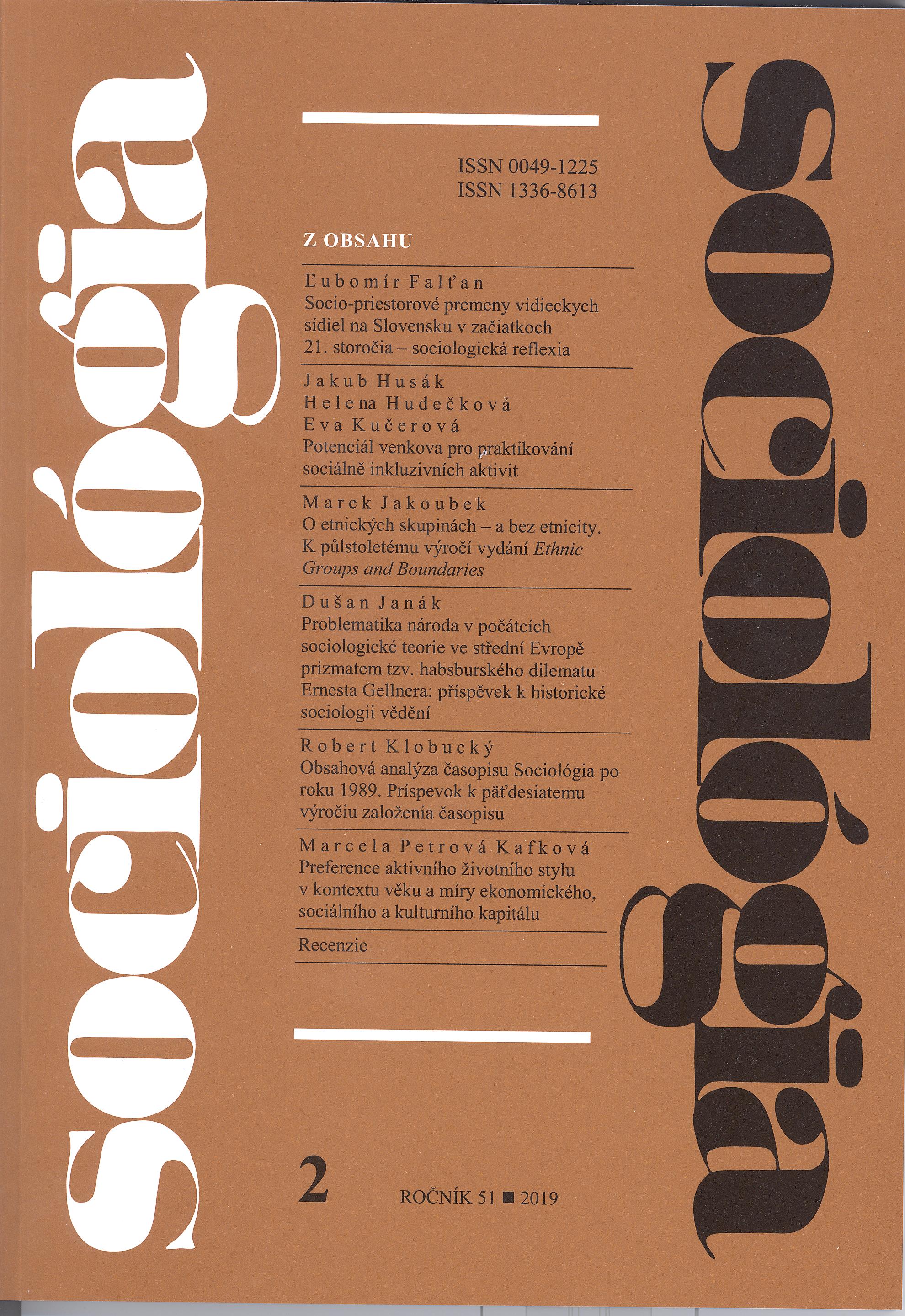Problematika národa v počátcích sociologické teorie ve střední Evropě prizmatem tzv. habsburského dilematu Ernesta Gellnera: příspěvek k historické sociologii vědění
The Issue of the Nation at the Beginning of Sociological Theory in Central Europe through the Lens of Ernest Gellner´s Concept of the Habsburg Dilemma: Contribution to Historical Sociology of Knowledge
Author(s): Dušan JanákSubject(s): History and theory of sociology, Nationalism Studies
Published by: SAV - Slovenská akadémia vied - Sociologický ústav
Keywords: Habsburg dilemma; E. Gellner; nation; sociology; history; the 20th century;
Summary/Abstract: The Issue of the Nation at the Beginning of Sociological Theory in Central Europe through the Lens of Ernest Gellner´s Concept of the Habsburg Dilemma: Contribution to Historical Sociology of Knowledge. The Habsburg Dilemma is the tension between two opposing world and political views (individualistic universalism and culturalistic organicism) which characterized, according to E. Gellner, the cultural and political life in the late period of the Austrian monarchy and was also mirrored in the field of intellectual production. The study applies this Gellner's thesis to the sociological reflection of national issues in the work of significant Central European sociologists of the first half of the 20th century. Gellner's concept allows us to explain the varying degree of interest in national issues among individual sociologists, as well as the nature of conceptual approach to nation-related issues by individual theoreticians, where we find distinct social bearers of both the worldviews (Hungary, Austria). In the countries without a pronounced split of the intellectual stratum (Czechoslovakia, Poland), the Habsburg dilemma can be recognized primarily as a conceptual tension within one theory, but it does not consistently explain the differences in the theoretical grasp of the topic or the degree of politicization of the issue.Sociológia 2019, Vol. 51 (No. 2: 152-178)
Journal: Sociológia - Slovak Sociological Review
- Issue Year: 51/2019
- Issue No: 2
- Page Range: 152-178
- Page Count: 27
- Language: Czech

